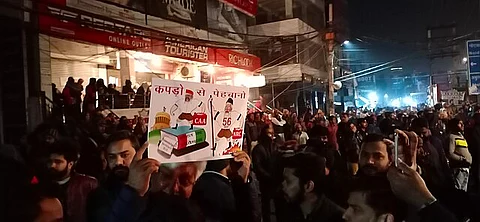

Pakistan’s Foreign Ministry has denounced India for systematically violating international human rights obligations through state-backed “deliberate incitement” against its Muslim minority.
Spokesperson Shafqat Ali Khan stated that India’s targeting of Muslims through hate speech, discriminatory policies, and institutional complicity threatens communal harmony and regional stability.
The condemnation follows heightened military tensions after India accused Pakistan of involvement in the Pahalgam attack—allegations Islamabad rejects as baseless.
Alarming Surge in Islamophobic Violence
A New Delhi-based civil rights group documented 184 hate crimes targeting Muslims across India between April 27 and May 8, affecting at least 316 individuals. These included 39 physical assaults, 19 vandalism incidents, and three murders. Over half (106 incidents) were directly linked to the Pahalgam attack, with Uttar Pradesh recording the highest number. The Association for Protection of Civil Rights warned these reflect a “nationally resonant atmosphere of hostility,” not isolated anomalies. Notable cases include BJP workers vandalizing "Karachi Bakery" in Hyderabad and viral music tracks labeling Muslims "traitors" and advocating boycotts.
Academic Arrest Highlights Crackdown on Dissent
Indian authorities arrested Ali Khan Mahmudabad, a Cambridge-educated political science professor at Ashoka University, on May 18 over social media posts. While praising India’s military operations against Pakistan, Mahmudabad criticized the government’s failure to protect Muslims from mob lynchings and bulldozer demolitions. He faced charges of “endangering national sovereignty” and “promoting communal disharmony”. Though granted interim bail by India’s Supreme Court on May 21, he remains under investigation by a special team, with restrictions on public commentary. Amnesty International condemned the arrest as religiously motivated, stating: “Mahmudabad is in jail not because of what he wrote but because he’s Muslim”.
Systemic Complicity and UN Findings
Pakistan’s statement notes state institutions enable anti-Muslim violence, citing [olice inaction during mob attacks, the use of laws like the Unlawful Activities Prevention Act to silence critics and a 2019 UN report documented India’s persistent rights abuses in Kashmir, including excessive force, torture, and immunity for security forces under the Armed Forces Special Powers Act (AFSPA).
Call for International Action
Islamabad urged New Delhi to “uphold the rights and safety of all citizens, regardless of faith” and appealed for global intervention. The situation underscores deepening religious polarization under Prime Minister Narendra Modi’s BJP government, which critics accuse of institutionalizing majoritarianism.